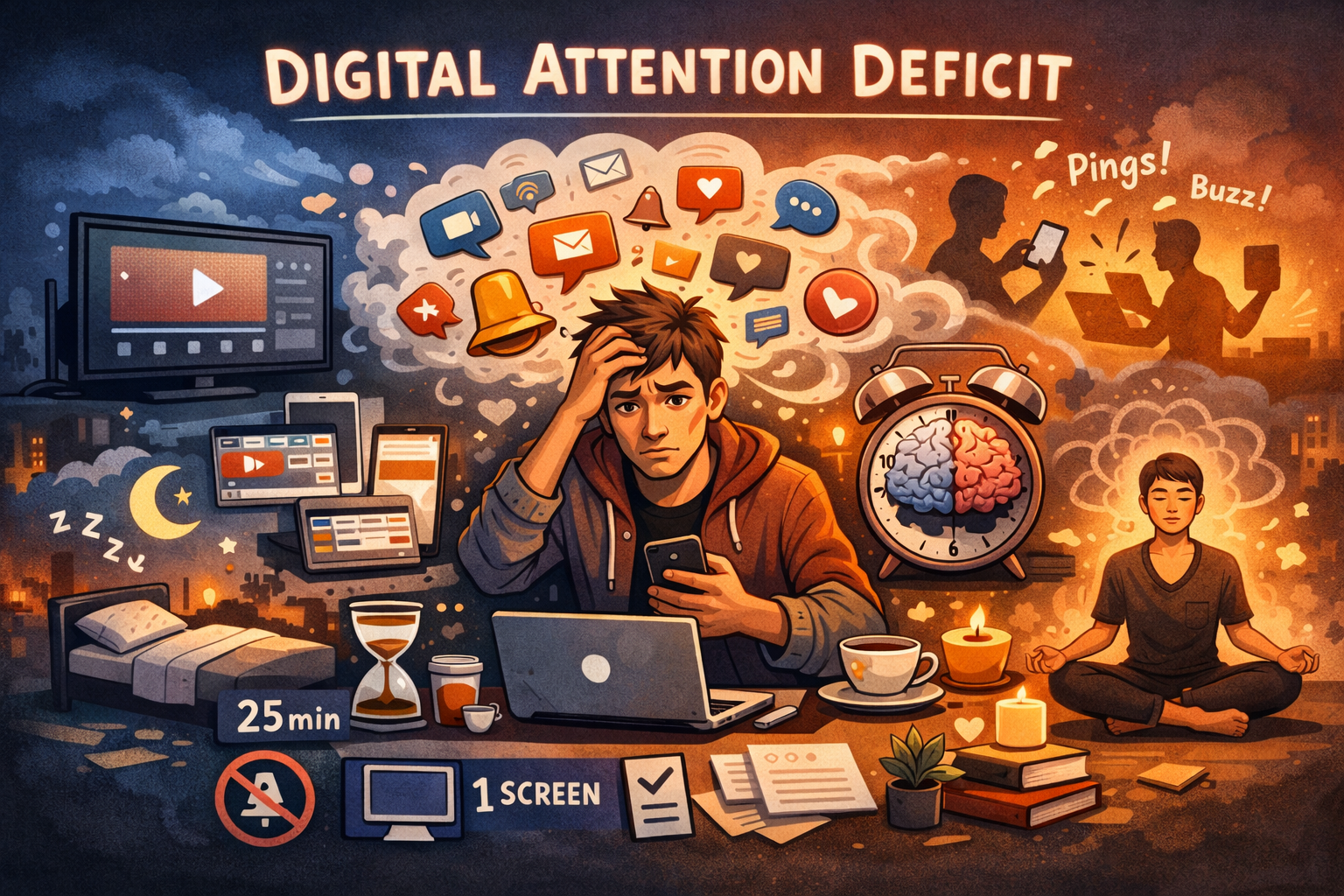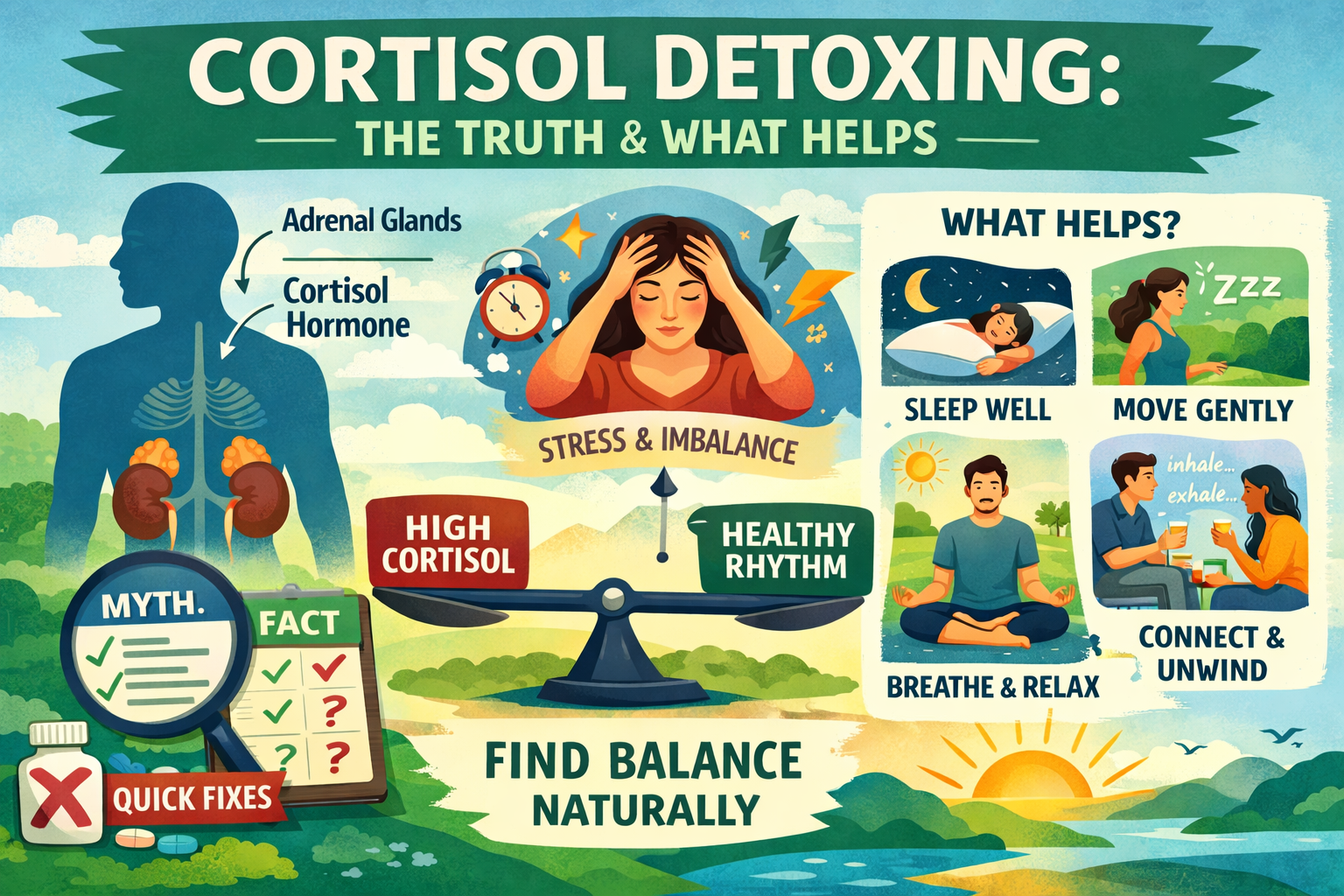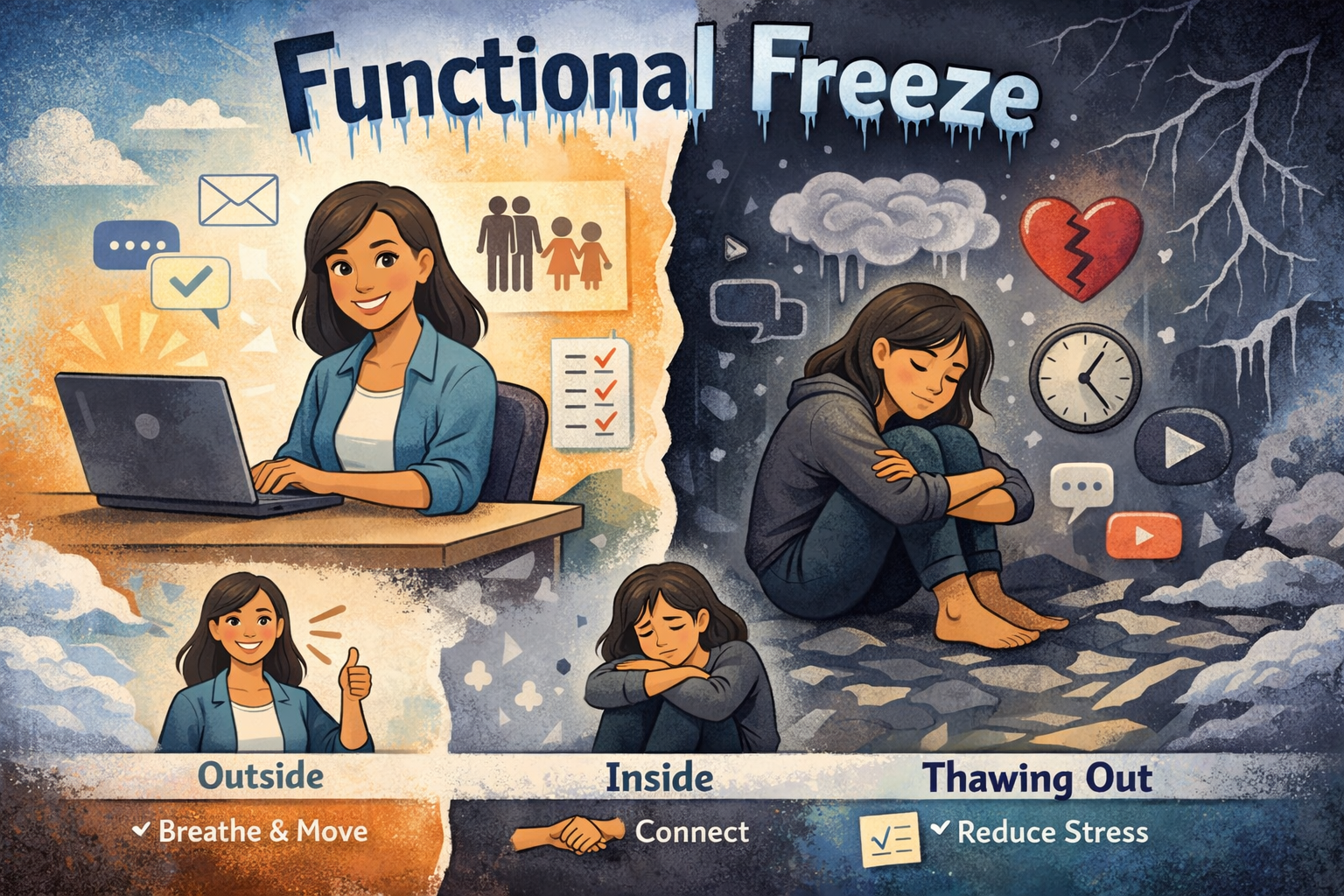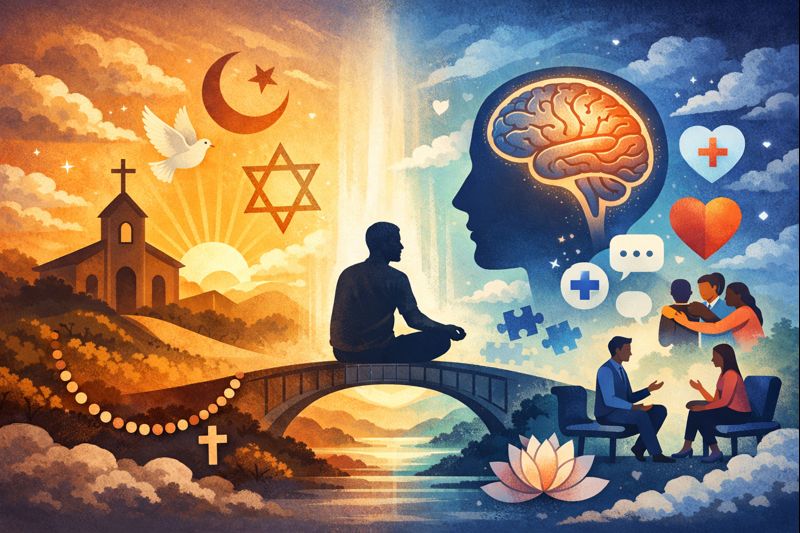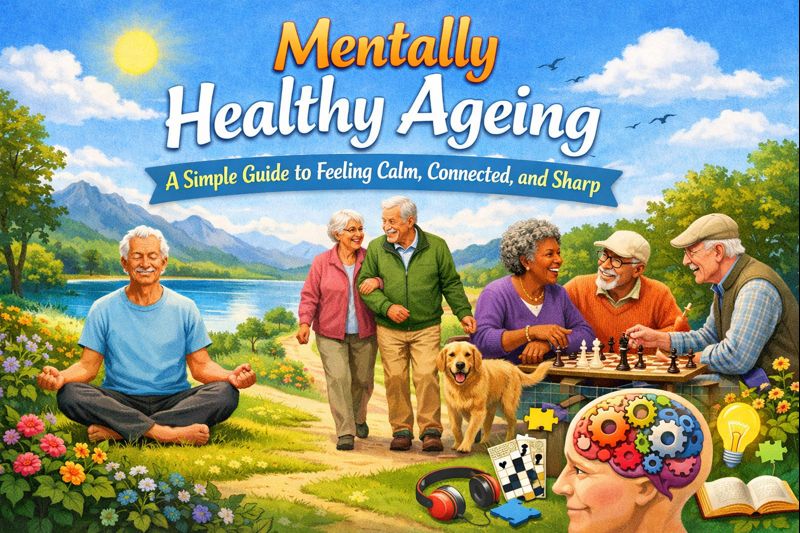Aging allows people to acquire wisdom and life experience yet it brings both emotional and physical issues and obstacles. We generally don’t fear death but we do afraid of pain and suffering associated with the illnesses and struggle of old age. There are many diseases and chronic illnesses that we encounter especially during our last phase of life but frequently face mental health problems and sleep disorders. These two problems affect older adults significantly because people tend to disregard their deep connection to health conditions.
This article examines the causes, diagnostic markers and solutions for mental health problems and sleep disorders affecting elderly people. So family members and caregivers alongside elderly themselves can take care to the extent possible for better life quality.
Why Mental Health Matters in Old Age
Mental health requires the same care and importance in older age as it does during our earlier part of life. Unfortunately, mental health issues receive little attention because society believes them to be natural consequences of aging. The elderly population experiences depression and anxiety together with loneliness and cognitive decline but these conditions are avoidable and do not meant necessarily to experience.
According to the World Health Organization (WHO), about 15% of adults aged 60 and above suffer from a mental disorder, with depression and dementia being the most common.
Common Mental Health Challenges in the Elderly
1. Depression: Often underdiagnosed, especially in those with other health issues.
2. Anxiety: Can be triggered by changes in health, financial distress, or social isolation.
3. Cognitive decline: Memory loss, confusion, and early signs of dementia.
4. Loneliness and social isolation: A major factor contributing to mental health decline.
"Mental health needs just as much attention as physical health, especially in later years." — National Institute on Aging
The Role of Sleep in Elderly Population
Senior people experience sleep problems at a very high rate. Research indicates that chronic sleep disturbances affect 40-70 percent of elderly people. As people age their internal body rhythms undergo natural changes which result in difficulties with both falling asleep and maintaining good sleep.
Sleep functions beyond deep rest because it plays a vital role in emotional management, memory consolidation, and brain wellness. Sleep problems tend to increase the severity of depression symptoms along with anxiety and these conditions may even cause mental deterioration leading to dementia.
Common Sleep Disorders in Older Adults
1. Insomnia: Trouble falling or staying asleep. (Sleep Foundation on Insomnia)
2. Sleep apnea: Interrupted breathing during sleep, often undiagnosed.
3. Restless leg syndrome: A strong urge to move legs, especially during night time.
4. Frequent waking: Often due to pain, medications, or a need to urinate.
How Mental Health and Sleep Are Linked?
The relationship between mental health struggle and sleep issues creates a self-reinforcing pattern among elderly people. Mental health suffers when sleep quality deteriorates while sleep quality suffers when mental health deteriorates. For example:
1. Depression can lead to early morning waking or oversleeping.
2. Anxiety causes racing thoughts that delay sleep onset.
3. Lack of sleep increases irritability, forgetfulness, and fatigue, mimicking symptoms of cognitive decline.
A study in Sleep Health Journal established that elderly people with severe insomnia condition develop depression at higher rates. Medical professionals have proven that treating sleep disorders leads to enhanced mood together with better mental clarity.
Factors That Contribute to Mental Health and Sleep Issues
Several biological, psychological, and social factors play a role:
1. Physical Health Conditions
-
Chronic pain due to back, arthritis or other illnesses.
-
Heart disease or diabetes
-
Medications that interfere with sleep
2. Life Transitions
-
Retirement and missing daily routine
-
Death of a spouse or close family member or friends
-
Moving to assisted living or nursing care
3. Lack of Social Interaction
-
Reduced mobility leads to fewer social events and outings
-
Children and friends may live far away (parental loneliness)
4. Poor Sleep Habits
-
Irregular sleep schedule
-
Excess daytime napping or lying on bed
-
Exposure to blue screens or bright lights before bed
Signs to Watch For
The following warning signs should be closely seen and monitored because they might indicate depression:
-
Persistent sadness or hopelessness
-
Withdrawal from routine activities
-
Trouble in paying focused attention or concentrating
-
Changes in appetite or sleep
-
Unusual confusion or memory issues
-
Irritability or restlessness
When these symptoms continue for two weeks or more, we need to seek help from a professional.
Practical Tips to Improve Sleep and Mental Health in Older Adults
Even the small changes in daily activities can produce major effects. Here are practical steps to take:
1. Establish a Healthy and Disciplined Routine
A consistent schedule for waking and eating meals together with sleeping hours enables the body to maintain its internal clock.
2. Encourage Regular Physical Activity
Light physical exercise including walking or chair yoga for 20 to 30 minutes enhances sleep quality, enhancing mood as well as decreases depressive symptoms. (Chair Yoga Resource)
3. Limit the Duration of Nap or Bed Rest
Taking long or delayed naps invariably affect night-time sleep time and quality. Naps should not exceed 30 minutes in duration and should occur before 3 p.m.
4. Create a Sleep-Friendly Environment
The combination of cool temperatures with dark spaces and quiet surroundings leads to superior sleep quality. Screen time and all bright lights should be avoided during night hours.
5. Stay Connected
Mental agility and mood benefits result from reduced social interaction. People are spending more and more time in virtual rather than real world. However, seniors should at least talk to their family members and close friends regularly. They should participate in community activities, attend social events or join senior groups. There are RWAs and other associations and groups at local level like in neighbourhood parks. In such fora, senior people should participate in their activities.
6. Doing Mindfulness Based Meditation and Practice Deep Relaxation Techniques
Practicing mindfulness based meditation, deep breathing exercises, and listening to calming music before going to bed helps people relax and getting ready for sleep. (Mindfulness Resources)
7. Review the Medications
Consult with the doctor to see whether if any of the medicines they are taking has side effects that may cause sleep disturbances or mood changes.
When to Seek Professional Help
Consultation with a professional is required if any mental health condition or sleep issue is not addressed and persist.
-
Geriatricians: Specialists in elder health
-
Sleep specialists: For sleep studies or sleep-apnea testing
-
Psychologists or counsellors: For counselling and therapy sessions (CBT for Insomnia)
-
Psychiatrists: For medication management when necessary
Seeking help at an early stage prevents the onset of serious complications which will enhance the quality of life.
Final Thoughts
The geriatric population should receive treatment for their mental health and sleep problems since these conditions represent treatable conditions that require attention and compassionate care. Seniors who receive proper care and establish regular routines along with supportive social network can achieve both restful sleep and emotional stability and enjoy their last phase of life.
"It’s never too late to feel better, sleep well, and live fully." — Geriatric Wellness Association
Are you looking for inner peace, deep relaxation or holistic solutions for mental health? Visit http://themindtherapy.in - your space for online counselling/therapy, free mental health tests, meditation, sound therapy etc.
Mind Therapy is India's trusted platform for mental health, mindfulness, and holistic healing. Explore expert-led programs, guided meditation, sound therapy and counselling at http://themindtherapy.in



